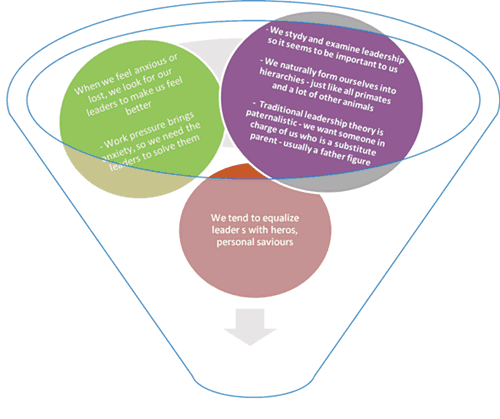Leadership for the XXI century
Leadership in Times of Change
Do you also believe that the new century imposes an unwritten rule that some things will never be the same, and some new shapes and forms will take place, advancing our knowledge, systems we operate in and overall business framework? In a world swallowed by the globalization process, we must learn to adapt new tools and techniques that if not used right away, quite soon leave you behind your competitors.
Why is Leadership important to us, in the first place?

 The Psychology of Leadership
The Psychology of Leadership
What is the Leadership for 21st Century about and how is it different?
Conventional Leadership
|
Leadership for 21st Century
|
Leadership of the 21st Century talks about leaders that will be championing change, challenging the status quo and taking the business constantly to a new level. New type of leadership invites you to learn how to drive out the best ideas for your business, not out of yourself, but out of your best people. A new emerging kind of leadership excludes a 'super-powerful' individual directing a range of activities, but it calls for a wiser approach of how better to utilize company’s resources. Inspiration for the new type of leadership comes throughout focusing on more dynamic techniques of delegation, innovation, inspiration, self-control, flexibility and more than ever – employee empowerment.
Further on, one who succeeds in leading others, without being solely their superior, is the one that holds the key to the leadership of the 21st Century. Future of leadership brings many of our old myths into a crash with reality. No longer will a good leader be one with a 'general's discipline' - cult of personality, but those who rely more on complex knowledge and innovations from all. Quick and adaptive minds that can cope with the changes that are incurring on daily basis would be their characteristics.
21st century leadership is not dependent on a position. This new type of leadership now means promoting a better way. This is an act not a role. Front line employees should be able to also example leadership, without even being in ‘power or authority’ positions. Future leaders will neither make the decisions nor manage the people in the traditional meaning. Future leaders will be the ones that create entrepreneurs out of its employees and develop an atmosphere of constant innovation. No longer will business structure be seen as superior-subordinate realm, but as a partnering relation for the welfare of all. This is the leadership of the 21st Century that, more than any other, will be able to provide you with a competitive advantage.
Coaching is emerging as one of the most powerful tools in leading and managing people in order to achieve results that will satisfy both personal and corporate goals. This training would take you for a ride of realizing what is the true power of vision, how to create an atmosphere of trust and innovation, how to promote knowledge and empowerment, but most importantly you will be able to realize whether you are and how to become a leader of the 21st Century.
